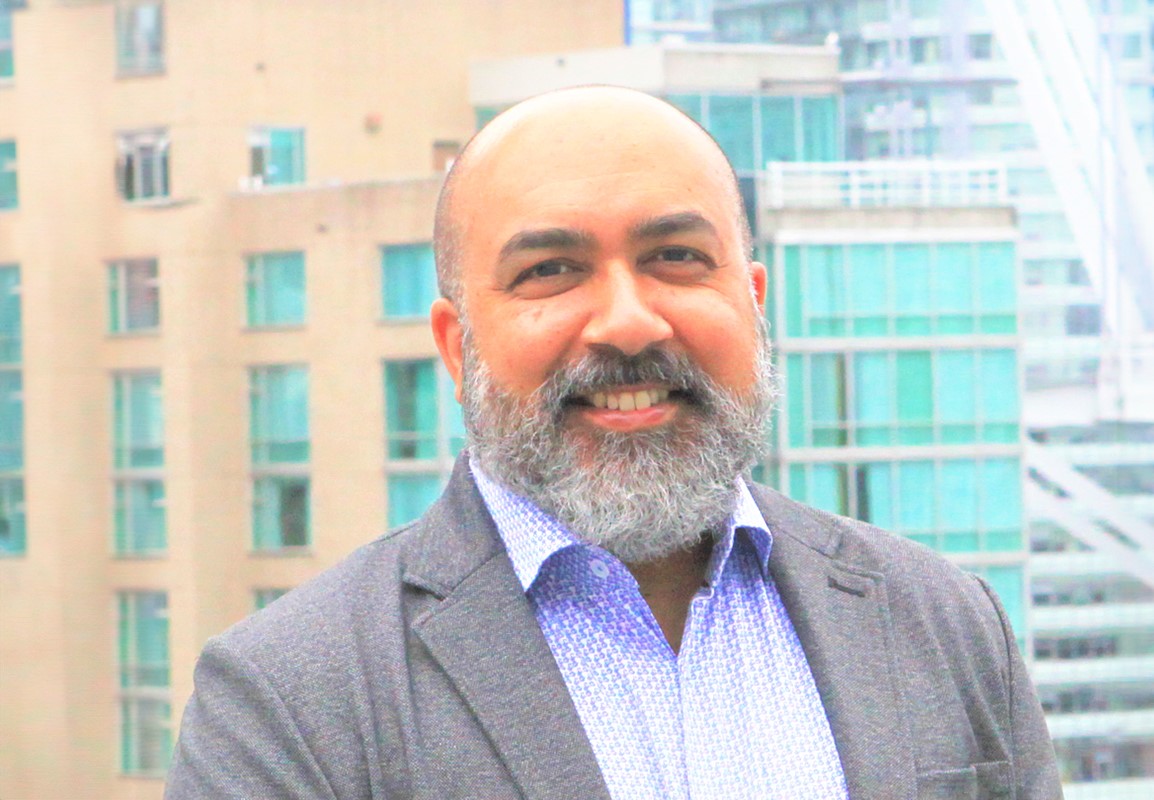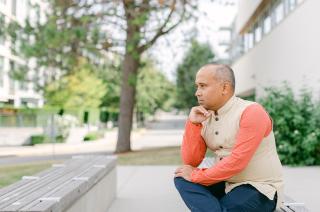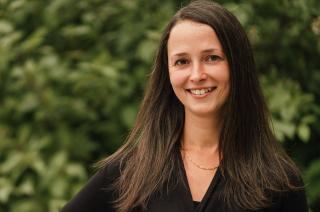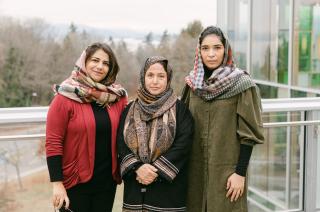
Allard Law alum Aleem Bharmal, KC (LLB '94) began his legal career as an articling student at one of Vancouver’s oldest law firms. But his experience with overt racism by one of the lawyers at that firm and the lack of any real action from the Law Society in addressing it, led him to rethink his career plans.
Since then, Aleem has forged a celebrated career practicing human rights law that has spanned over 20 years. He’s served as a United Nations officer in Rwanda and as the Executive Director of the Community Legal Assistance Society (CLAS), a not-for-profit legal organization advancing dignity, equality and justice in BC. Today, Aleem continues his work with CLAS as a human rights lawyer.
Aleem has also been a committed and active member of the Canadian legal community. He just completed his term as President of the Canadian Bar Association, BC Branch (CBABC) and has been a longstanding mentor to Allard law students through its mentorship program with CBABC. He was awarded the CBABC President’s Medal in 2016 in recognition of his significant contributions to the legal profession, became Queen’s Counsel in 2019, and has just been elected as a Bencher of the Law Society of BC.
In this Q&A, Aleem provides insights into his background and the trajectory that led him to pursue a career as a human rights lawyer and his experiences within the CBABC.
Why did you decide to pursue a career in law?
My original plan was to follow in my father’s footsteps and pursue a career in actuarial science, given I was good at math and my father had done very well in that profession.
However, while I did fine at the required subjects related to the field, such as math, stats and economics, the actual actuarial science courses I found tedious and very difficult. On the other hand, I had taken a couple of philosophy electives and really enjoyed those.
Eventually, I switched my major to philosophy and told my dad this was “pre-law,” as I couldn’t tell my immigrant father who had sacrificed so much for us that I was switching my major purely out of a love of the subject! It turned out to be true, in the end, thankfully. I can’t imagine what else I’d be doing if not for practicing law.
How has your family background influenced you as a lawyer?
My parents were both born and raised in Tanzania before the upheaval of the late 1960s and early 70s when the colonial governments of that region were being overthrown, along with a rise in hostility toward South Asians who were seen, not entirely unjustifiably, as part of the previous power structure.
My parents’ community was part of the merchant class in those East African societies. When the disruption occurred, they were caught in the middle and lost everything. A large part of that displaced community eventually came to Canada as part of the first large wave of non-European refugee immigration to this country.
This rich history and growing up in a largely immigrant neighbourhood of Scarborough, a borough on the east side of Toronto, has informed my sense of who I am as a lawyer in Canada. One of the things I’ve learned is to never be complacent and to always be actively pushing forward and advocating to make our society more inclusive and welcoming.
What stands out for you from being a student at Allard Law?
I attended UBC Law School, not yet “Allard” back then, and the degree was an LL.B. (or Bachelor of Laws) and not a J.D. (or Juris Doctor), and we did not have the benefit of such a beautiful facility that you now enjoy.
Instead, we were housed in what was then affectionately nicknamed the “Bunker” – a very fitting moniker given the dark and foreboding concrete structure it was, with its unfathomable lack of windows and little view of the stunning setting it was situated in. I also learned that its style of architecture was called “Brutalism,” another very apt name. I always felt like we bonded more having to go through law school in the “Bunker”!
What led you to work as a human rights officer for the United Nations in Rwanda early on in your legal career?
I was fortunate enough, after graduating, to be hired at what was then touted as the oldest law firm in Vancouver. It was all very well until one of the senior partners at the firm, a big rainmaker for them, told an obviously racist joke about South Asians, even being bold enough to imitate an Indian accent while telling it. This had a deep effect on me, and I struggled with what to do about it.
After consultation with my father and uncle, I ultimately filed a complaint with the Law Society, which did not seem to see it as much of an issue, as far as I could tell. All this, almost thirty years ago now, had a profound effect on my legal career trajectory.
This articling experience, and my reaction to it, propelled me onto a different course in life, and after completing my articles, and despite my parents’ reservations, in early 1996, I headed off to Kigali, to work as a Human Rights Officer for the United Nations High Commission of Human Rights.
What was that work like? What led you to move on from this role?
My assigned task was to help report on the administration of justice and ongoing human rights violations, less than two years after the 1994 Rwandan genocide. Although I felt compelled to leave by the fall of 1996, and not renew my six-month term, given the mounting nearby fatalities from militant cross-border incursions and a government counter-offensive, I returned to Canada with even more resolve to address human rights issues.
This brief experience has always had a profound impact on me and my appreciation of my life here in Canada, which I will never take for granted.
As the past president of the Canadian Bar Association, BC Branch (CBABC), what do you think is the most pressing issue facing the profession right now?
As I reflect upon my just completed term as CBABC President, one striking aspect of it all was the deeply concerning need for CBABC to issue repeated public statements responding to attacks on lawyers and the judiciary, defending the critical importance of their respective independence to the rule of law.
This work is ongoing and essential as we seek to rebuild people’s faith in our legal and judicial systems and respond to the BC Government’s move to a single regulator of lawyers, notaries and paralegals. As CBABC President, my key message, on behalf of the organization and profession, was the importance of maintaining the independence of the profession through regulation of lawyers by lawyers. This is our most pressing current issue in my view.


